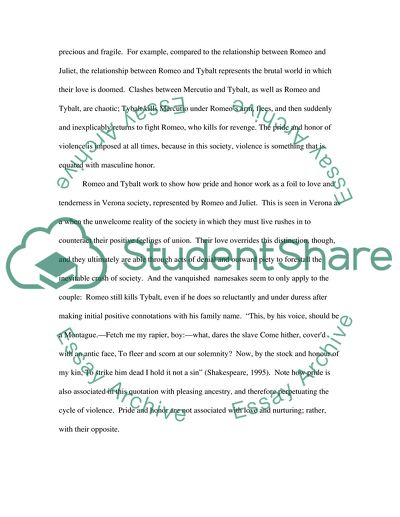Cite this document
(“Pride and Honor in the Time of Shakespeares Romeo and Juliet Coursework”, n.d.)
Pride and Honor in the Time of Shakespeares Romeo and Juliet Coursework. Retrieved from https://studentshare.org/social-science/1744157-pride-and-honour-in-romeo-and-juliet-using-romeo-and-tybalt-as-examples
Pride and Honor in the Time of Shakespeares Romeo and Juliet Coursework. Retrieved from https://studentshare.org/social-science/1744157-pride-and-honour-in-romeo-and-juliet-using-romeo-and-tybalt-as-examples
(Pride and Honor in the Time of Shakespeares Romeo and Juliet Coursework)
Pride and Honor in the Time of Shakespeares Romeo and Juliet Coursework. https://studentshare.org/social-science/1744157-pride-and-honour-in-romeo-and-juliet-using-romeo-and-tybalt-as-examples.
Pride and Honor in the Time of Shakespeares Romeo and Juliet Coursework. https://studentshare.org/social-science/1744157-pride-and-honour-in-romeo-and-juliet-using-romeo-and-tybalt-as-examples.
“Pride and Honor in the Time of Shakespeares Romeo and Juliet Coursework”, n.d. https://studentshare.org/social-science/1744157-pride-and-honour-in-romeo-and-juliet-using-romeo-and-tybalt-as-examples.


